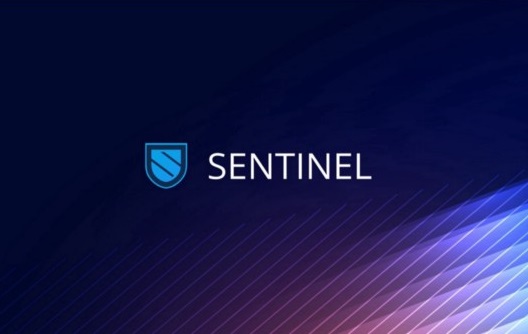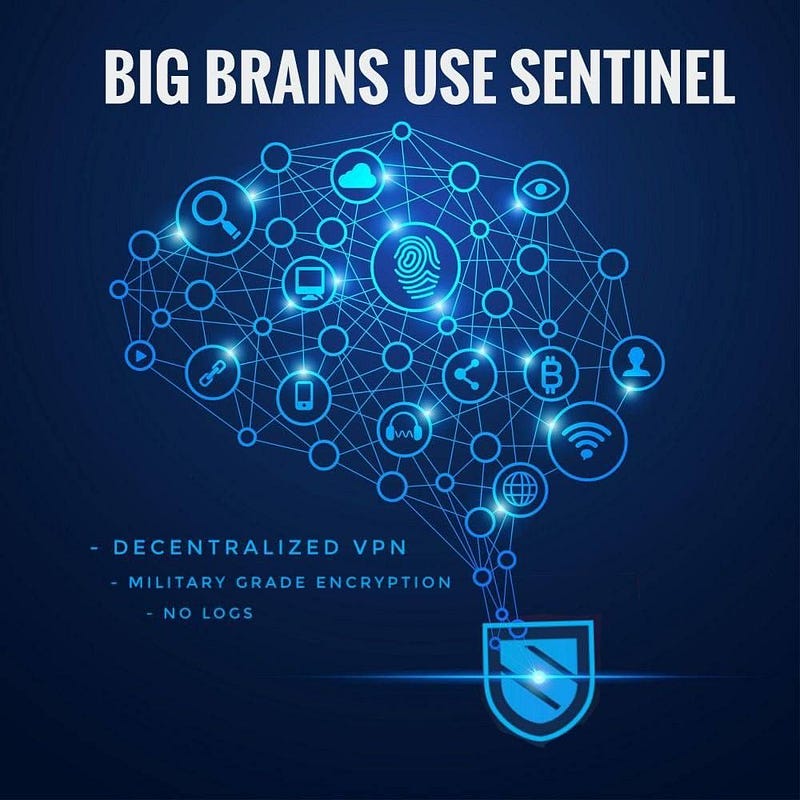
Sentinel goes live to offer decentralized virtual private networks
Over the past few decades, internet use has grown significantly, offering people and organizations alike multiple benefits. With the number of people using the internet daily expanding rapidly, so does the information that they share. Over time, big tech companies have been increasingly threatening the internet’s ability to store and transmit information through censorship. Apart from this, such companies have been engaging in mass data collection, consequently violating the right to access information and privacy.
To circumvent this right infringement, people started using virtual private networks (VPNs). Through VPNs, people can bypass geographical restrictions and access content that is restricted to specific regions. However, the current VPN providers are centralized organizations that cannot be trusted will sensitive information. Over the past few years, researchers have found that VPN providers have been intentionally collecting and storing user data, creating security vulnerabilities in the process.
Apart from this, these firms cannot prove the authenticity of their claims, and their services cost an arm and a leg. This means that the VPN industry, which is growing at a rate of 15% annually to potentially hit $75 billion by 2030, operates as a cartel.
Leveraging the blockchain to disrupt the VPN industry
Looking to address this problem, Sentinel went live as a platform that seeks to facilitate universal internet access in a trusted and provable way. To achieve this, the project allows both individuals and organizations to develop cost-effective, scalable, and decentralized networking solutions on top of its Cosmos-based blockchain network. To streamline the development process of these solutions, Sentinel lets users tap into its decentralized consensus, open-source networking integrations, and a distributed community, which is based on the node network.
Specifically, Sentinel seeks to provide a framework that supports the development of decentralized virtual private networks (dVPNs). This framework would tap into the Cosmos Inter Blockchain Communication (IBC), which enables cross-chain interoperability.
Banking on this idea, the project aims to create a decentralized finance (DeFi) application on the Handshake Network. The application would store its data on IPFS (Filecoin), and it would use resources from the Akash Network. On top of this, the application would be able to integrate with dVPNs on the Sentinel network. This functionality would offer high security and privacy standards for both the application and its users.

Advantages of using a dVPN
Unlike the VPN services that are currently available in the market, a decentralized virtual private network can offer:
- Provable end-to-end encryption between an internet user and the server that they seek to access information from. A dVPN would achieve this via open-source transparency and application verification integrity systems.
- Proof of bandwidth. A dVPN would have a bandwidth provability system, which would ensure server providers over the right bandwidth for the agreed compensation in a provable and trustless way.
- Proof of no logs. A dVPN would offer evidence that application developers do not collect any information, regarding an internet user’s browsing activities or data history.
- Distributed exit nodes. A dVPN would feature a robust network of exit nodes owned by distributed users that don’t know the identities of internet users.
- Distributed relay network. This feature would help minimize the threats of malicious characters and ensure internet users remain anonymous to exit node hosts.
Addressing challenges that might inhibit adoption

While the cost of developing top-tier VPNs is high, Sentinel promises that the process of creating dVPNs is cost-effective. By integrating Cosmos-based architecture, Sentinel offers a public and private key management system and on-chain node querying to make dVPN creation developer-friendly, consequently cutting costs.
Sentinel eliminates the need for exit node management to prevent dVPN operators from getting DMCA requests. The network instead integrates its community-based node hosts, allowing dVPN owners to create service contracts and quality standards. This also allows them to manage server ownership seamlessly.
Sentinel’s open-source design mitigates security vulnerabilities, seeing as third parties will regularly review the network. By weeding out any weaknesses, they will help address security threats that dVPNs might have.
Providing reliable payment methods
To ensure dVPN providers have a seamless experience while receiving payments, Sentinel will allow the use of fiat currencies and Cosmos IBC-supported cryptocurrencies. The pricing of bandwidths will be in fiat currencies. Also, while dVPN hosts can receive payments in fiats and cryptos, they will have to pay for the infrastructure that supports nodes in fiats only. Apart from supported cryptos, users can also use the Sentinel token to pay for dVPN services.
The Sentinel ecosystem will boast two payment models. These are real-time and pre-paid.
A real-time payment option will be applicable where dVPN hosts intend to let users pay per the amount of data they consume. This method will also give the hosts the ability to set specific prices for their services. To ensure no one is defrauded in this payment option, Sentinel has an escrow service that requires a user to lock an agreed-upon amount of money in escrow before proceeding to create a connection through a dVPN. On the other hand, the Sentinel Proof of Bandwidth protocol will ensure users get what they pay for.
In a pre-paid model, dVPN users will be able to purchase access to the service for a specified period. In this option, users will get unlimited bandwidth for the period they have paid for.